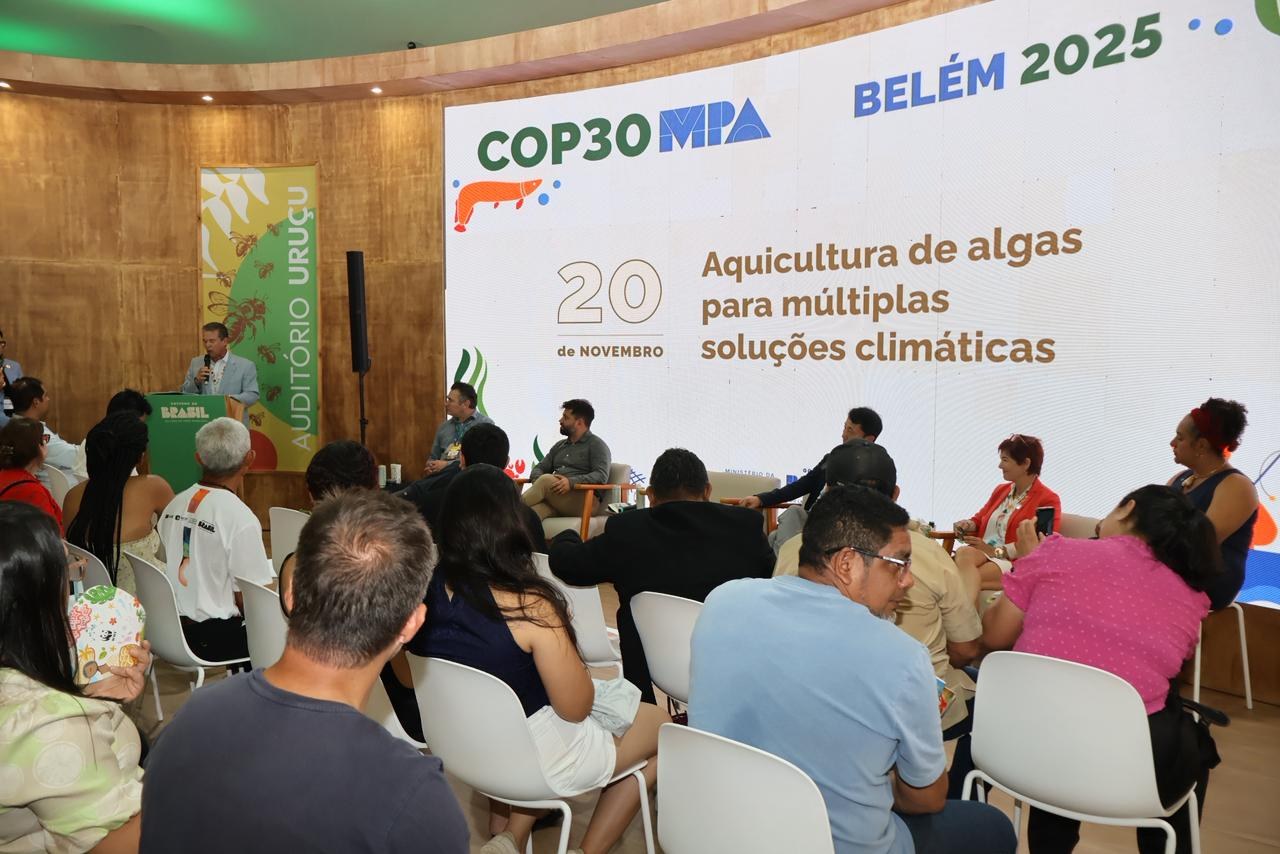Brazil announces its entry into the Global Initiative for Marine Seaweed at COP30
The action seeks to promote sustainable practices in the seaweed chain, expand the inclusion of small-scale producers, and strengthen international cooperation in sustainability, science, trade, and innovation in algaculture

By the Ministry of Fisheries and Aquaculture
The Ministry of Fisheries and Aquaculture (Ministério da Pesca e Aquicultura/ MPA) announced that Brazil will join the United Nations Global Seaweed Initiative (UNGSI). This commitment reinforces the nation's dedication to sustainable practices in seaweed production and commercialization (algaculture), expanding the inclusion of small-scale producers and fostering international cooperation across sustainability, science, trade, and innovation.
On Thursday (21), during the panel "Aquatic Food Systems as Climate Solutions," held at the Brazil Pavilion in the Blue Zone of COP30, authorities highlighted the strategic role of algae farming for the blue economy and sustainable food systems.
The Minister of Fisheries and Aquaculture, Mr. André de Paula, stated that the sector holds significant opportunities for the country. “Algaculture integrates biodiversity, bioeconomy, and territorial development, in addition to opening new opportunities for producers, researchers, and entrepreneurs. We are working for Brazil to advance with regulatory security, technical knowledge, and new investments,” he affirmed.
Ms. Fernanda de Paula, National Secretary for Aquaculture, highlighted that Brazil is progressing in building a regulatory environment guided by science and innovation. She stressed that the sector could become one of the new pillars of the blue economy, with direct impacts on food security, climate adaptation, and the creation of decent work. “Algaculture holds extraordinary potential, but still faces dispersed investments and fragmented regulations. We need a collaborative approach between governments, international agencies, science, the private sector, and coastal communities,” she explained.
Action Agenda
The MPA, through the National Secretariat for Aquaculture and the International Advisory, collaborated on drafting the Initiative's Terms of Reference and Concept Note, alongside representatives from ten countries and international organizations. Madagascar, Indonesia, and France have already confirmed participation; Brazil and Chile are supporters, alongside the World Bank, CEVA, CNRS, ISA, SAMS, and other institutions.
The United Nations Global Seaweed Initiative is part of the COP30 Action Agenda, under the pillar of Transforming Agriculture and Food Systems, which seeks to promote more resilient and sustainable food systems. In the preparatory process, the MPA led the Solutions Acceleration Plan “Multiple climate benefits of algaculture”, in partnership with UNCTAD, FAO, the Aquatic Food Coalition, Aquatic Food & Ocean Breakthroughs, and WorldFish.
Present at the panel, traditional cook Ms. Aparecida Alves, from São Gonçalo Beach (Paraty), reported on the environmental and social results of community cultivation. “With the work of Kappaphycus alvarezii, we saw cleaner water and the return of marine species around the farms. This shows that algaculture can improve the territory when done with care and knowledge. It can generate income and strengthen food sovereignty, but this only happens when those who live from the sea are listened to from the start,” she affirmed.
English version: Trad. Bárbara Menezes.
